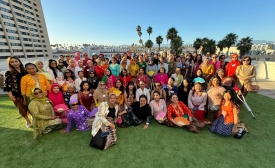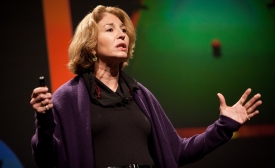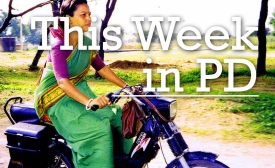women in diplomacy

Women of the Indonesian diaspora are an instrumental part of diplomacy, with unwavering dedication, unending creative ideas, and Indonesia’s best interests at heart, always.

Gain career advice and expert insight from women at the top of their fields in this new podcast from USC Master of Public Diplomacy alumna Kelsey Suemnicht (MPD '13).
[T]he Voice of Libyan Women (VLW), a women’s rights organization focused on peace and security, the tools I use to drive change and create peace are rooted in diplomacy, cooperation, culture, and history. In other words, what some people call “soft power.”

In recognition of Women's History Month, this roundup looks at the role of women in public diplomacy.
Nguyen Nguyet Nga is the first female economics director in the Ministry of Foreign Affairs, nominated by the President as Ambassador. She is a high ranking official at the Asia-Europe Meeting (ASEM), deputy head of the Vietnamese government negotiation delegation for economic and trade issues. She was also the Vietnamese Embassy Envoy in the US. Nga is always very busy as she undertakes many different works. She now is busy with preparing for the APEC high ranking conferences and the activities to be held in Vietnam in 2017.
Twenty young female American and Jordanian entrepreneurs have been selected to participate in a week-long cultural exchange and fellowship in Amman, Jordan through a not-for-profit partnership between Open Hands Initiative and the Women First Enterprise (WFE), a branch of the Angel Resource Institute (ARI).
These sorts of gender-exclusive comments and questions on size, hairstyle, and fashion reinforce perceptions of women in the foreign policy and national security worlds. They are insulting in their own right, but also prolong conscious and unconscious biases against women and their access and empowerment in these fields.
Perhaps most importantly, a less male representation projects a less fusty national image at a time when “soft” power counts for ever more. Indeed, feminisation seems to be part of a broader French effort to “renew our global diplomacy for the 21st century”, in the words of Laurent Fabius, the foreign minister, whose predecessor but one was a woman, Michèle Alliot-Marie.







